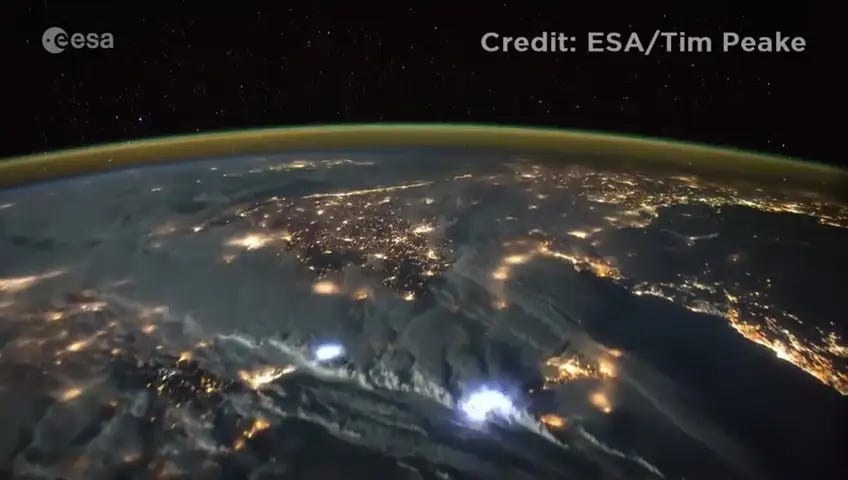Land: The Only Thing That Lasts
a story about a silent war over land involving off shore holding companies and the mysterious figures who use them take land and homes from others in a very old rivalry
“The land is the only thing in the world worth working for, worth fighting for, worth dying for, because it’s the only thing that lasts.” — Gerald O’Hara in Gone With The Wind, (Margaret Mitchell)
What if you had to leave your home suddenly because of some kind of disaster that struck your community? Would you expect that your home and property should remain yours in your absence? Would you imagine that someone would come and take your home and property whilst you’re gone? Would you imagine that anyone could just come to your home and announce they’re taking over and then evict you?
Imagine you returned home and found someone living in your home, denying it ever belonged to you. Imagine the government came and hauled you away to a camp, and they took all your property and they took your business and even after they release you from internment, they never gave you your home or business back. Imagine some entity issued you an eviction notice for a date in the not too distant future. Imagine there’s no residential tenancy branch to appeal to, and imaging the courts are on the side of the entity who decided it’s taking your home and property. Or imagine they gave you a 90 days to GTFO, with no recourse.
Most present-day North Americans find this contemptible and outrageous. And yet, some present-day North Americans were victims of the Japanese internment camps set up by the governments of Canada and the United States during WW2. And some present day North Americans were victims of the Holocaust and, even though they survived concentration camps, they lost their homes. And some present day North Americans were displaced by Idi Amin and sought refuge here. Many North Americans survived massive displacement that followed the partitioning of India. Many North Americans survived the devastating American wars waged against Iraq and Afghanistan. I could go on, I’m sure I’ve missed many other examples of human displacement that happened globally.
Most North Americans who have never lived anywhere else cannot wrap our heads around someone kicking us out of our homes without reasonable grounds, and the state leaving us with no way to get our homes back, or worst yet, participating in the displacement from and theft of our homes. We live well here, and in our self indulgent griping we often forget how much we have that remains the envy of many around the world. Lately Canadians have had the opportunity to consider our relationship to the land, and how property rights impact our lives and communities. We hadn’t thought about what these land acknowledgments mean when we recite them meaninglessly or slap them on our document or website, never giving a thought to what that represent for us and our neighbours. We don’t think about the history that led us to these performative remedial practises. The recent hysteria around the Cowichan ruling has shown us we should think about that stuff, especially in BC and anywhere else in Canada where we live and work and play on unceded indigenous territory.
Many people who oppose the Cowichan ruling, and the concept of Aboriginal title in Canada generally, also take a pro Israel stance and view Palestinians as an unwelcome and uninvited outgrowth of the Islamic-Arab imperial conquest which swept across Southwest Asia and devoured everything in its path and imposed Dhimmitude on all non-Muslims, Jews and Christians alike. Those who adopt a pro Israel stance often take a view of mutual exclusivity when it comes to Jews versus Arabs in the lands of the collapsed Ottoman Empire that have become Israel and the Palestinian Territories.
Arabs and Jews call each other settler, among other things, as part of the ongoing rivalry. North Americans feel compelled to take a side. A right wing segment of the pro Israel side self identifying as Zionist has grown fond of declaring that there’s no such thing as Palestinian, these people belong in or to Jordan, they insist. I’ve heard that said quite genuinely and shamelessly. It’s seductive when one considers Hamas and the violent Arab resistance. And it’s wrong. When faced with First Nations calling us settlers and uninvited guests, most Canadians bristle at the notion that we are unwelcome in the land of our birth, a land our ancestors lived on for generations and generations, going back a couple hundred years. It smacks of dehumanisation.
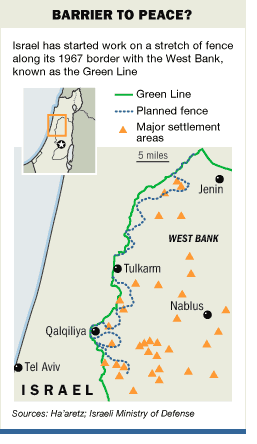
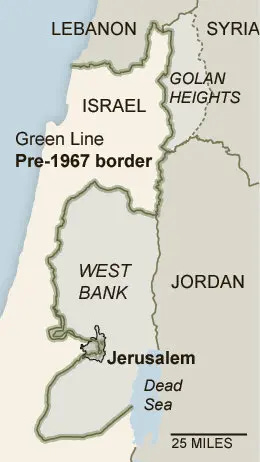
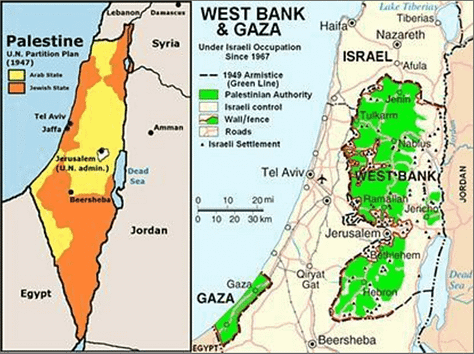
What do the words Zionism and Zionist mean? We bandy about the term Zionist, never giving it serious consideration what this means, what actions it really represents and what ethic it embodies. Does G-d serve a political end? That’s a good question and I’ll let readers figure that out. Suffice it to say, the Zionism of today differs from Theodore Herzl’s Zionism. We must honestly face that truth. Does Zionism mean the same thing for the Jewish diaspora as for Israelis? Does it mean the same thing for Israelis living on opposite sides of the green line? When antisemitic activists hate on Zionists, it’s mostly a dog whistle for Jew hate. Yet, what all gets packed into that word Zionist, and why do diaspora Jews get scapegoated for that stuff? Scapegoating Jews lingers as a vestige of long history of hating Jews that take us back to the “Joos killed G-d” era and possibly beyond that into deep history.
What’s going on here? Why do some Canadians have different rules for different people when it comes to land title and property ownership and the right to live in one’s own home without malicious persecutory displacement driven by some ideological bent? What happened to Hillel’s teaching—don’t do to others what you hate for yourself? What happened to the Golden Rule—do unto others as you would have them so unto you? What happened to the eighth, ninth, and tenth commandments—do not steal, bear false witness, or covet? I don’t know the answers, I ask these questions to stimulate thought.
Let’s talk about Shimon Hazadik Portfolio C.V. L.P., a Delaware-based holding company which owns Nahalat Shimon Ltd, an Israeli company that works on behalf of Jewish settlers to displace Palestinians from their East Jerusalem homes through Israeli-court ordered expulsions. The litigious Nahalat Shimon Ltd brings expulsion lawsuits against Palestinians with a view to acquiring that land to build settler developments for Israeli settlers. North American Jews can make Aliyah to live in these settler developments. Nahalat Shimon Ltd uses the Absentees’ Property Law and the Israeli Tenant Protection Law.
To understand the story of the East Jerusalem displacement of Palestinians we need to return to the 1948 war, when Jordan occupied and seized the land and properties of the Jewish Quarter of the Old City, destroying large swaths of the quarter between 1948 and 1967. The Jewish communities of Shimon Hatzadik and Nahalat Shimon disappeared into what’s now present day Sheikh Jarrah, a neighbourhood that’s become home to many Palestinians who fled from the war. Two communal trusts built these neighbourhoods near the tomb of 3rd century BCE priest Simon the Righteous, after purchasing the land in 1876 during Ottoman rule.
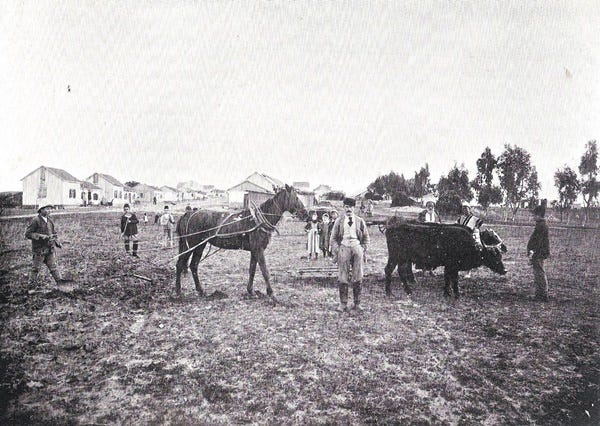
The land transferred from Arab hands to Jewish hands late in the 19th century. Many prominent Muslim families, such as the Husseini and Nashashibi families, lived there. In fact, Nazi mufti al-Husseini, grew up in a mansion located in the Sheikh Jarrah area. Sheikh Jarrah gets its name from al-Din al-Jarrahi, the personal physician of Saladin, and al-Jarrahi’s tomb sits in the area, with a Sufi shrine dedicated to him. So the Arabs and the Jews developed their respective communities in the same area. The Arabs enjoyed a posh community and the Jews suffered a poverty and overcrowding.
Following the 1948 massacre of the Hadassah medical convoy, the Jewish enclaves became unsafe for Jews, who evacuated, and then Jordan occupied the area and gave those Jewish homes to Arabs. The Arabs purged everything Jewish from the area they conquered, and they settled Palestinians there. UNRWA helped Jordan build homes in which to house 28 Palestinian families on that Jewish-owned land. In 1967, after the Six Day War, Israel regained that territory. Thus began the transfer of property to Israel which served as custodian. The Jewish organisations of the original purchase made a claim for that land, which the Israeli government accepted in 1972. In 1970 the Knesset passed a law recognising the transfer of property from Jew to Arab carried out by Jordan. With the thinking that it would not want to reverse the property it transferred from Arab to Jews.
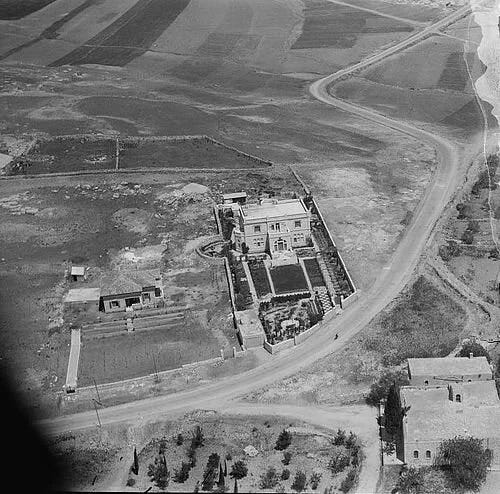
So, Jordan confiscated Jewish property and land and Israel confiscated Arab property and land. Jordan handed title of Jewish property to Arabs and Israel handed title of Arab property to Jews. In a bid to reverse the catastrophic displacement and purging of Jews from Old City and the demolition of their community, some Israelis and some nationalists in the Jewish diaspora now seek to displace Palestinians from Sheikh Jarrah to make way for a Jewish community. Israel considers it a private property dispute and officially takes no position. What’s the real deal, though? Keep reading.
Whew, reader that’s a lot of complexity in a backstory, isn’t it? So, what about Nahalat Shimon Ltd? It’s an Israeli subsidiary of the Delaware based Shimon Hazadik Portfolio C.V. L.P., established in 2000. In 2003 Nahalat Shimon Ltd purchased the title to the Sheikh Jarrah plots from the Jewish trusts for a cool $3 million bucks. Where did the money come from? Good question.
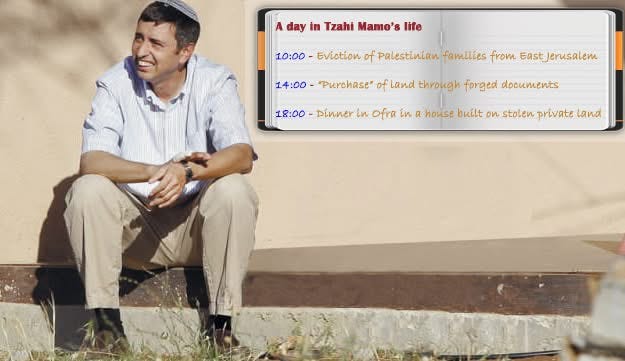
Israeli investigative reporter Uri Blau has tracked the paper trail and money flow. What did he find? We have a company listed in Delaware, with a lawyer based in New York, and some sketchy dealings involving a Dutch holding company. We don’t know where the money for the purchase of the Sheikh Jarrah land came from, the individuals have gone to great lengths to hide their identities behind holding companies. Trails lead to Rabbi Yitzhak Mamo, (commonly known as Tzahi Mamo) as a representative of Nahalat Shimon Ltd. Who’s Tzahi Mamo, you ask? Well, Haviv Rettig Gur describes Mamo as “a longtime settlement activist who has spent the better part of three decades establishing front companies for the purchase of land and properties from Palestinians throughout the West Bank and East Jerusalem.”
“Mamo told the police then that he wears “four main hats,” and listed several companies and non-governmental organizations that buy land or houses from Arabs, settle Jews in such properties, and promote tourism in sensitive areas. He said he was involved with a company called Spice Real Estate “consulting governmental and private bodies on the issue of lands;” worked at Kolel Lomdei Shalem, promoting establishment of religious schools in territories captured by Israel in the 1967 war; was “the CEO of sorts” of Reshit Jerusalem Seminary, which has received at least 1.5 million shekels — about $450,000 — from Israel’s education ministry since 2015; and also helped Bnei Rachel, a yeshiva near Rachel’s Tomb at the entrance of Bethlehem.” — Uri Blau, June 2021, in Forward
So, what’s the bottom line? Well, none of the original Israeli owners of the Sheikh Jarrah plots has any legal claim to that land anymore. The story of this battle for real estate waged between right wing Israelis and the Palestinians who live in homes on these Jewish-owned plots of land continues and it has widened. I won’t delve into it, only will mention Rabin ordered an investigation and the results of the investigation, called the Klugman Report, shocked him and lead to implementation of restrictions to stop to the collusion between the Custodian General and Jewish groups that resulted in right wing groups gaining property rights. The Palestinians who lost their homes never saw their property returned. Bibi buried the whole thing.
“In most cases, rights to these properties were acquired by virtue of a declaration by the Custodian of Absentees’ Property and in a minority of cases via acquisition by the Ministry of Housing. The transfer of funds for the various transactions mentioned above was done by the Ministry of Housing either via direct (allocation from the) budget or by transfer of funds to another body, such as the General Custodian, Amidar, Himanuta, or by transfer of legacy funds earmarked by the Ministerial Committee on Legacy Matters to - in the case of East Jerusalem - the Jewish Quarter Rehabilitation and Development Company for use in the Muslim Quarter. Additional transfer of aid was effected via corporate loans transferred to non-profit associations.” — Klugman Report, English translation
How does this all square with Jewish (religious) law? There’s a thing in Jewish law called takanat hashuk. It’s a Rabbinic Enactment of a Torah law about what happens when a Jew ends up buying stolen property. Torah law says that a person who buys a stolen item must return the stolen property to its original owner, the Enactment tries to balance things, and says that if the person bought the property in good faith, and later the original owner identifies it as theirs, the owner must reimburse the buyer the price paid before the buyer returns the item. The Sheikh Jarrah real estate war has resulted in many court cases, including Nahalat Shimon Ltd. V. Diab Hassan Muhammad et al, decided by Judge Daniel Mordechai Dambit, on April 15, 2024.
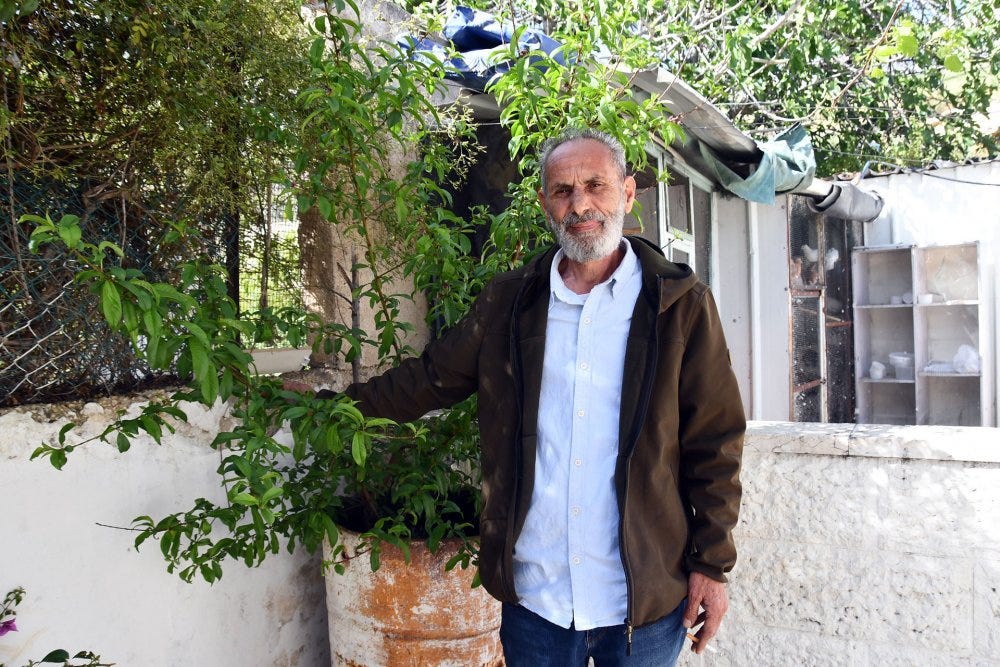
This concerns an eviction claim from real estate in the Shimon HaTzadik complex in the Sheikh Jarrah neighborhood in Jerusalem.
Over the course of fifty years, dozens of lawsuits have been conducted regarding properties in this complex between the current plaintiff (and its predecessors in rights) and the occupants, in all of which the rights of the plaintiff and its predecessors in the complex were recognized, at least at a sufficient level. In this proceeding as well, the defendants raised arguments completely denying the validity of the registration of the plaintiff’s rights and the connection between the registered right and the disputed real estate. After investigation and inquiry, it was found in this judgment (as in its predecessors) that there is no substance to the arguments.
Like my predecessors, I reiterate and determine that the plaintiff has rights in the property. Unlike previous cases, the most well-known of which was recently decided in REA 2401/21 Sami Jaouni et al. v. Nahalat Shimon Ltd. (March 1, 2022), in this case no legal right whatsoever of the defendants in the land was found.
Therefore, the claim should be accepted. — Judge Daniel Mordechai Dambit, TA-9940-09, Nahalat Shimon Ltd v. Diab Hassan Muhammad et al, April 15, 2024 via Peace Now Israel, translation from Hebrew to English by Grok
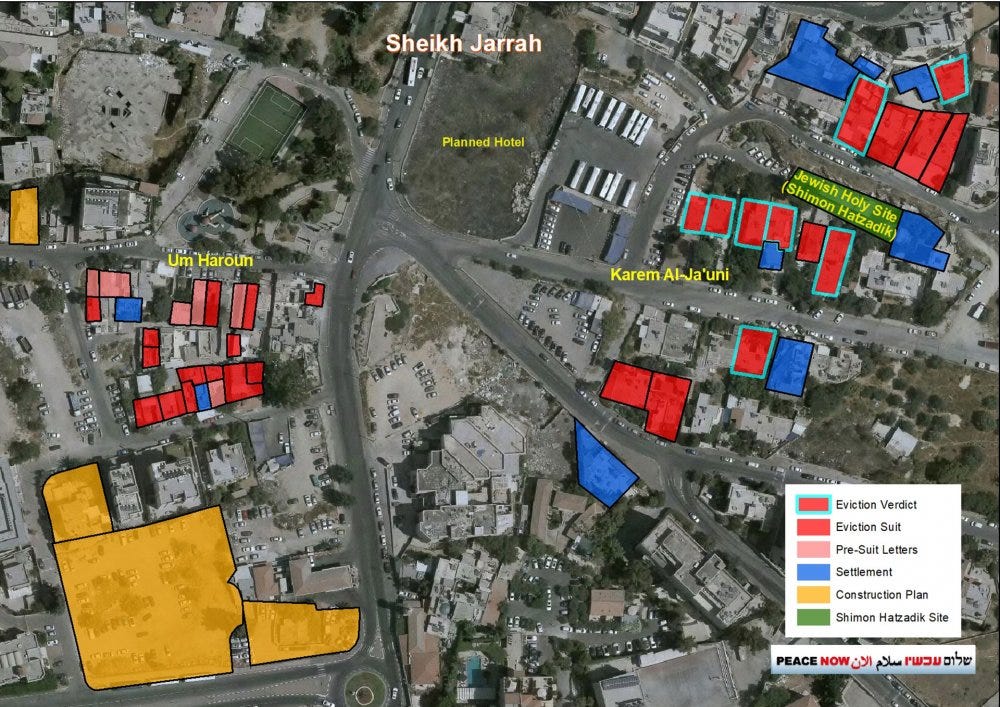
So, that’s a story about misguided humans fighting silent real estate wars over land. It’s a story about ideologically-driven rivalries which have trapped innocent people on both sides of the Israel—Palestinian, Jewish—Arab conflict. It’s maybe also a story about carrying grudges and needing to exact vengeance. It’s maybe a story about forgetting mercy. Eye for an eye and the whole world goes blind. A fight over property got funky during a war and sh1t went downhill from there. Jordan and Israel each confiscated property belonging to people from the rival country and gave it to their own people. All this fighting over land, simply to serve a religious war involving a historically much disputed territory. When you support Israel and say you don’t like what you describe as race-based property laws in Canada, which aren’t race based property laws and are a kind of takanat hashuk for First Nations, then you don’t make much sense and we can see that ideology has twisted your perception of reality.
My ethos compels me to support humanity over ideology. I have the kind of brain that compels me to think independently, and revisit my analyses from time to time, in order to reassess my position. My views change over time because I learn things I didn’t know before. The recent Cowichan Tribes ruling has given me pause to look at familiar things with fresh eyes. It has caused me to question my ethics and reflect upon what I value. It’s forced me to think about things I previously ignored. That’s sometimes uncomfortable and it’s part of growing and learning and being alive.
What ethos drives you?



